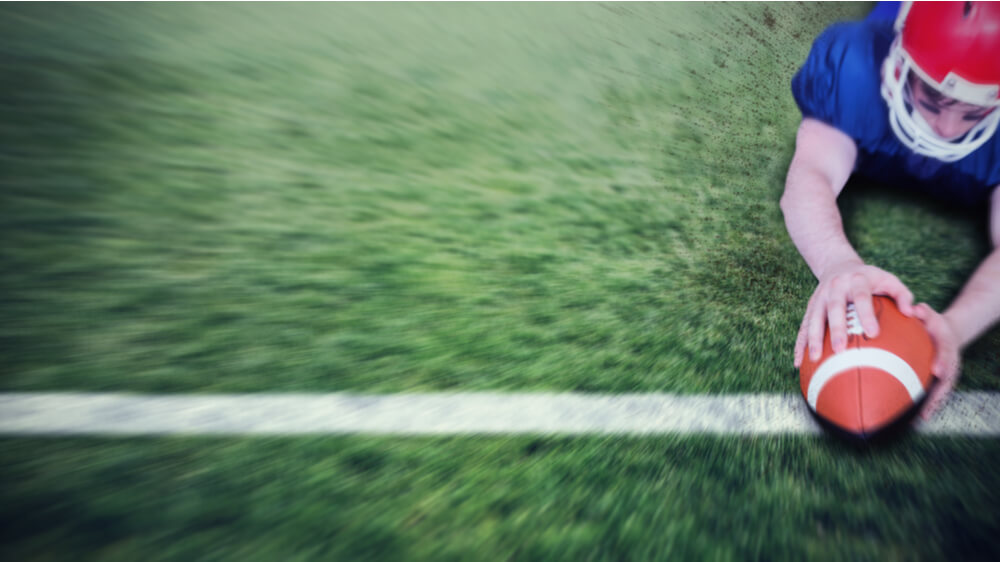Stop Sharing Those Viral Videos of the Disabled High Schooler Scoring the Touchdown
As a lifelong sports fan, it’s no accident that I see several suggested videos emphasizing athletics on my Facebook feed. Too often, however, the half-court buzzer-beaters and game-winning touchdowns are interspersed with benevolent athletes offering charity to those they deem too disabled to score on their own merits. For every video of a disabled athlete actually competing in a sport – adaptive or otherwise – there are at least three of abled athletes feigning competitiveness to allow a staged touchdown by a disabled person.
What could be wrong with sharing these “feel-good” videos? People inevitably presume that I am finding frivolous faults in football fanfare. While many may see these videos as proof that the abled athletes’ mothers raised them to be decent people, beneath the surface lurks a harrowing reality. Instead of centering those with disabilities, such clips have a harmful impact upon both disabled people and the wider culture. In short, these videos marginalize a community that can least afford to be further from the echelons of power.
The videos and their viewers invariably celebrate not the disabled, but the abled athletes who plot the publicity stunts. In a recent video, I scrolled past comment after comment lauding “good sportsmanship,” but could find no information even mentioning the disabled person who had suited up for the play. While I assume that he was also a high school student, there is no way to ascertain any aspect of his identity, other than the video’s pigeonholing him into a blanket category of “too disabled to compete in high school athletics.” In other words, disability is made to be synonymous with the need for athletic charity.
In a different viral video, the nameless person who “scored” the touchdown is only identified as “autistic.” Plenty of people with autism are perfectly capable of playing competitive sports with their neurotypical peers. Regrettably, this publicity stunt reinforces the idea that those with autism have no role to play in competitive varsity athletics – except as fodder for media attention for abled athletes and sports programs.
Did the videographers think to interview the disabled athletes who scored the touchdowns? Hardly. In none of these videos are disabled people given the opportunity to articulate any thoughts. After all, allowing the disabled to score touchdowns is merely a paean to the “benevolence” of the abled competitors.
After viewing such videos, I am left to ponder whether the disabled high schoolers in the videos are cognizant of the glorified acting on the part of the abled players. We’ll never know, because we are never invited to see the disabled athletes as young adults with their own aspirations, needs, and achievements. Rather, we are invited to see them as having neither cognitive capacity nor athletic acumen. If I, as a disability rights activist, question the agency of the disabled people in the videos, there’s no doubt that the wider society would dismiss their abilities altogether.
Truly disturbing is that the exposure given to such stories lead many to believe that there is no place for disabled people in sports at all. The reality is that there are tens of thousands of athletes with disabilities who are perfectly capable of competing both in adaptive athletics and alongside abled athletes. While there may be a subset of those with disabilities who would welcome the aforementioned acts of “charity,” plenty of us find them both humiliating and downright dismissive of our ability to excel in athletics.
Most importantly, it does untold damage to presuppose that the only athletic joy a disabled person can achieve is through publicity stunts. From training in the Paralympic Games to the Special Olympics and Unified Sports, as well allowing supports to facilitate disabled athletes’ competing with abled peers, there are so many opportunities for disabled people to experience the joy of striving in sport. It is this competitive capacity that should be highlighted, nurtured, and celebrated – not the cheap publicity stunts that erase disabled people’s athletic abilities.
About Rooted In Rights
Rooted in Rights exists to amplify the perspectives of the disability community. Blog posts and storyteller videos that we publish and content we re-share on social media do not necessarily reflect the opinions or values of Rooted in Rights nor indicate an endorsement of a program or service by Rooted in Rights. We respect and aim to reflect the diversity of opinions and experiences of the disability community. Rooted in Rights seeks to highlight discussions, not direct them. Learn more about Rooted In Rights




“[…]If I, as a disability rights activist, question the agency of the disabled people in the videos, there’s no doubt that the wider society would dismiss their abilities altogether.”
Questioning agency and dismissing ability are still two different things – on the same slope.
It’s about time to understand that ability does not preclude agency on any level; though it may limit it and/or the perception of it.
“Instead of centering those with disabilities, such clips have a harmful impact upon both disabled people and the wider culture. In short, these videos marginalize a community that can least afford to be further from the echelons of power.”
Very true!
autistic people can play regular sports. physically disabled people and people with mental disabilities that do prevent them from competing with neurotypicals should have access to leagues specifically for them. i guarantee you that the personally unathletic autistic kid and the disabled kid who doesn’t have access to sports they can play are both fully aware this is an act of performative charity.